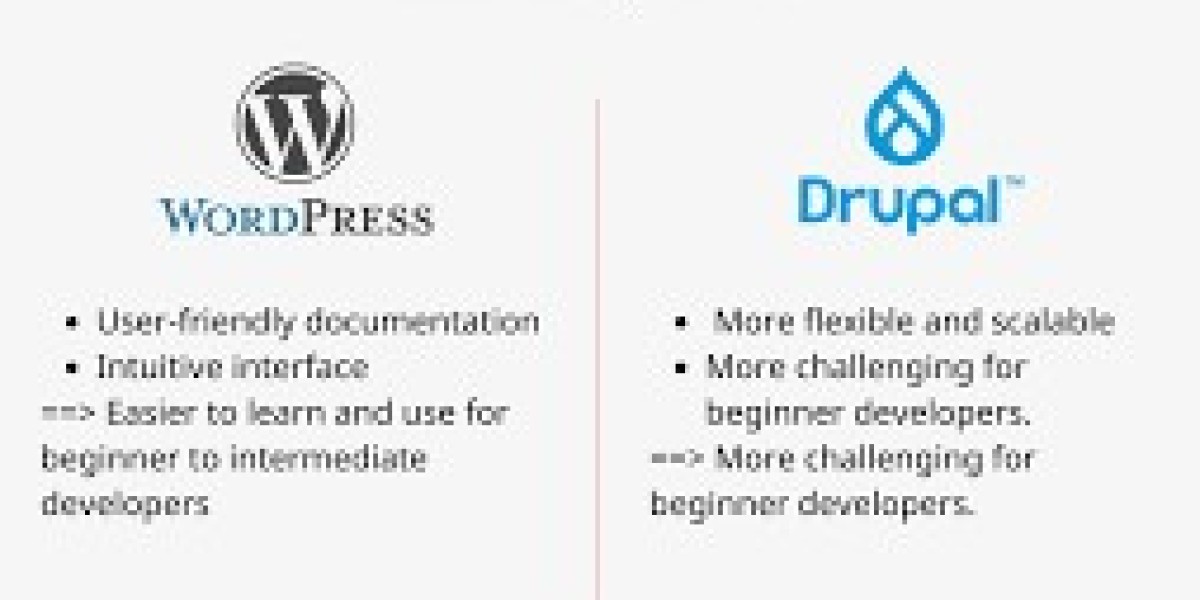In the ever-evolving landscape of web development, choosing the right content management system (CMS) can be a pivotal decision for businesses, developers, and content creators alike. As we navigate through 2024, the CMS arena remains predominantly led by two giants: Drupal and WordPress. Both platforms have matured over the years, growing their communities, expanding their feature sets, and refining their user experiences. However, despite their shared goal of enabling web content management, Drupal and WordPress cater to distinct audiences with unique needs and challenges.
This guide dives deep into the differences between Drupal and WordPress in 2024, providing you with a comprehensive comparison to help you make an informed decision. For a more detailed exploration, consider checking out the in-depth analysis on the Difference Between Drupal and WordPress in 2024.
Ease of Use
WordPress:
Renowned for its user-friendly interface, WordPress continues to be the go-to choice for beginners and non-developers.
The platform offers a vast array of themes and plugins, making it simple for users to customize their sites without needing extensive coding knowledge.
Drupal:
Drupal, with its robust and flexible framework, is geared more towards users with technical expertise or those willing to climb the learning curve.
It offers a high degree of customization and scalability, making it ideal for complex, large-scale websites.
Customization and Flexibility
WordPress:
WordPress shines in the realm of customization through its extensive library of themes and plugins, enabling users to easily tailor their sites' appearance and functionality.
While highly customizable, WordPress can face limitations when handling highly complex or unique site requirements.
Drupal:
Drupal's architecture excels in offering unparalleled customization and flexibility, favored by developers for complex projects.
Its modular design allows for intricate, bespoke website functionalities, making it the preferred choice for enterprise-level websites.
Security
WordPress:
WordPress maintains a strong focus on security, with regular updates and patches to safeguard against vulnerabilities.
However, the widespread use of third-party themes and plugins can introduce security risks if not carefully managed.
Drupal:
Drupal is renowned for its rigorous security standards, making it a trusted platform for websites with stringent security requirements, such as government and financial institutions.
The community's proactive approach to security, alongside built-in advanced security features, provides a robust defense against potential threats.
Performance and Scalability
WordPress:
WordPress sites can deliver excellent performance and scalability, especially when optimized with caching plugins and managed hosting solutions.
However, high-traffic sites or those with complex functionalities may require significant optimization to maintain performance.
Drupal:
Drupal's architecture is inherently designed for scalability and high performance, handling vast amounts of content and high user traffic with ease.
Its efficiency and flexibility make it ideal for websites expected to grow or experience variable traffic patterns.
Community Support and Resources
WordPress:
The WordPress community is one of the largest and most vibrant in the CMS world, offering extensive resources, forums, and tutorials for users of all skill levels.
This extensive support network makes finding solutions and enhancements for WordPress sites relatively straightforward.
Drupal:
Drupal boasts a dedicated and knowledgeable community, providing a wealth of modules, documentation, and forums.
The community's commitment to the platform ensures continuous improvement and support for Drupal users, although it might be more geared towards users with technical backgrounds.
Conclusion
Choosing between Drupal and WordPress in 2024 ultimately boils down to your specific needs, technical expertise, and long-term objectives. WordPress stands out for its ease of use, making it ideal for bloggers, small to medium-sized businesses, and those seeking a straightforward, flexible platform. On the other hand, Drupal offers unmatched depth for those requiring a more robust, secure, and scalable solution, particularly suitable for large enterprises and complex projects.
Both platforms have evolved to offer compelling features and capabilities in 2024, each with its unique strengths and considerations. Whether you prioritize user-friendliness and a vast ecosystem of themes and plugins, or you need a powerful framework capable of supporting intricate, large-scale websites, your choice between Drupal and WordPress will set the foundation for your online presence.
For an even deeper dive into the nuances between these two CMS giants, don't forget to explore the detailed comparison on the Difference Between Drupal and WordPress in 2024. This resource will provide you with further insights and considerations to guide your decision-making process in the dynamic and diverse world of web development.









